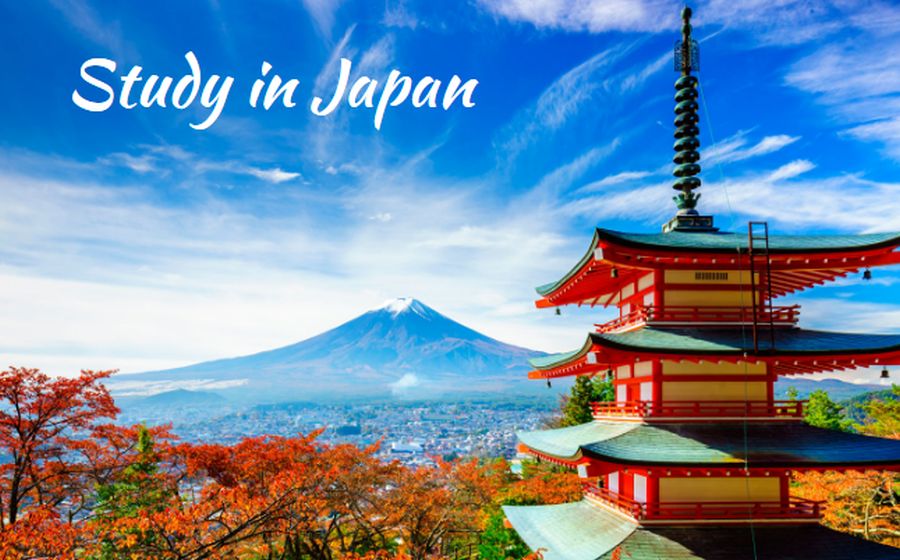Often cited as an example for the excellence of its advanced technology education, Japan welcomes approximately 300,000 foreign students every year. Practical modalities, operation, and cost of studies… L’Etudiant provides an overview of what you need to know.
Renowned for its culture blending ancient traditions and high-tech exuberance, its cuisine listed as UNESCO heritage, and its breathtaking landscapes, Japan is also the 8th country hosting the most international students. In France, a little over 1,000 students fly to the archipelago every year (according to figures from Campus France). If, like them, you dream of studying in the Land of the Rising Sun, here is the information you need to know before packing your bags.
A university model similar to the French one
Predominantly university-based, Japanese higher education comprises nearly 800 institutions, both public and private. The typical duration of studies is four years (six years for medical, dental, and veterinary studies), leading to a bachelor’s degree. It is possible to continue to a master’s degree (+2 years) and then to a doctoral degree (+3 years) in Graduate Schools. This model remains quite similar to our system.
Among the most renowned universities are Kyoto University, closely followed by the University of Tokyo, the capital of Japan. Following them are faculties such as Tohoku, Hokkaido, Nagoya, Osaka, Tsukuba, and Akita. Spread across the country, the approximately 3,000 Special Training Colleges continue to gain popularity among students. In two or four years, students graduate with a professional diploma in fields such as agriculture, healthcare, social work, and commerce.
Registration, visa, health… What should you expect?
Not everyone can enter university! While an agreement with Japan allows high school graduates to enter directly into the first cycle of university, enrollment is frequently conditional on an entrance examination, called the EJU (Examination for Japanese University Admission for International Students). The objective? Assess your knowledge of the Japanese language (not mandatory if you opt for an English-language curriculum) and, potentially, your level in science and mathematics.
This test is conducted twice a year (in June and November), only on-site. A particularity of the Japanese university model: the academic year spans from April to March of the following year (with summer and winter breaks). For enrollment, you usually have until January. Check the Japan Study Support website for a more precise idea of all the institutions offering international programs.
When it comes to studying in Japan, you’ll need a student visa. But before applying for it, you’ll need to have chosen your institution, as their approval is necessary to obtain the valuable document. One piece of advice: be patient, as the process often takes 2 or 3 months!
Another thing to consider before leaving is enrollment in the Japanese social security system. It’s mandatory and covers 80% of medical expenses. So, there’s no need to seek an extension from your insurance in France.
Lastly, since the currency is yen, contact your bank to see what they can offer to lighten the burden of exchange rates.
Budget: the cost of education, main source of expenses
If you’re not among the lucky ones on an exchange program, you’ll have to pay registration and tuition fees, which in some institutions can reach significant amounts. Expect to pay between €6,900 and €7,800 for public universities, and up to €11,300 for vocational training institutes.
Apart from this major expense, life is somewhat less expensive in Japan (on average, -12%), especially when it comes to housing. To give you an idea of the prices, here’s a comparative table where yen amounts are converted into euros (source: Expat Cost of Living).
Only a few scholarships are offered to French students wishing to pursue their studies in Japan, and most of them are reserved for holders of a bachelor’s degree plus four years of study, such as the Monbusho scholarship funded by the Japanese Ministry of Education, or a bachelor’s degree plus five years of study, like the Lavoisier excellence scholarship in France. Visit the Jasso website for more information.
Housing: Sharing is Cheaper!
From homestays to shared apartments and university residences, student accommodations are plentiful, but their prices may not fit all budgets. The most economical solution? Sharing a dormitory located within a university-affiliated structure, costing around 350 € per month on average.
